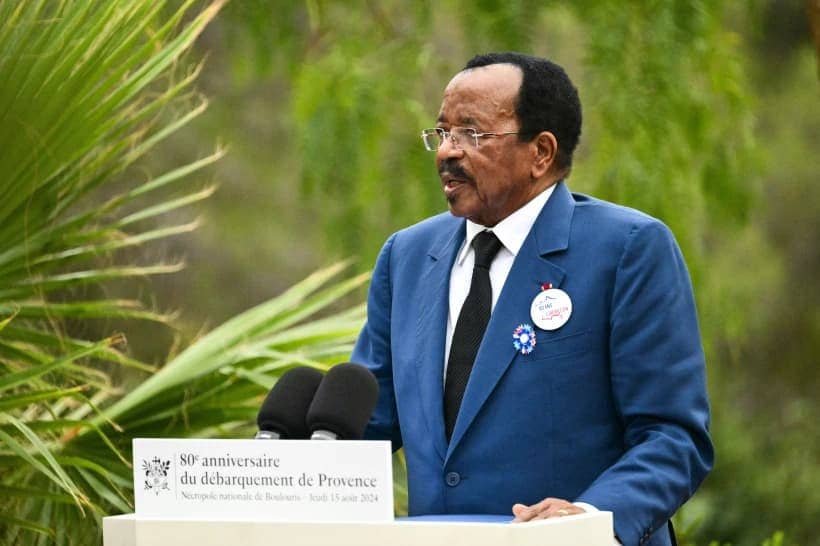YAOUNDÉ, Cameroon – An Ebola epidemic in the Democratic Republic of the Congo is the worst ever in the country, according to the World Health Organization.
The tenth recorded outbreak in the country began nearly a year ago, and has killed almost 1,400 people, and the figures are likely to keep rising, says Emmanuel Bofoe of the Catholic charity, Caritas DRC.
“The Ebola epidemic in North Kivu and Ituri [Congo provinces] persists, and is even spreading, despite the significant means deployed by many actors at all levels,” said Bofoe.
The WHO says an expert committee will meet on Friday to discuss whether to declare the Ebola outbreak a global health emergency. This is the third time the committee is meeting on the current Ebola outbreak. The WHO announcement comes a day after the first cross-border case in this outbreak was confirmed.
Experts have long feared Ebola could spread to neighboring countries because of rebel attacks and community resistance hampering virus containment work in eastern Congo, one of the world’s most turbulent regions. The virus can spread quickly via close contact with bodily fluids of those infected and can be fatal in up to 90 percent of cases.
Bofoe said the Church is doing what it can to stop the spread of the virus.
A 5-year-old boy who crossed from Congo into Uganda earlier this week has since died. Two relatives in Uganda also have the highly contagious virus.
“The bishops of the dioceses affected by the Ebola virus — Butembo-Beni, Bunia, Wamba, and Kisangani — have made fervent appeals to Catholic faithful and the general public, for the strict application of preventive measures. They have also mobilized all Church structures to get involved in efforts to counter the spread of the epidemic. But the epidemic continues to spread,” he told Crux.
Bofoe said that Beni – the epicenter of the epidemic – has been living in “chronic insecurity” for many years, characterized by “repeated and impromptu attacks by unidentified armed groups.”
He said some of the attacks had targeted Ebola treatment centers.
“This insecurity constitutes the major obstacle to the teams working to take care of patients, carry out sensitization campaigns, and offer dignified and secure burials for the dead,” Bofoe told Crux.
“In the same vein, members of the response teams have to wear bullet proofs to access some areas known for frequent attacks,” he added.
Besides insecurity, Bofoe said a culture of denial, including a reliance on witch doctors, is hurting the efforts to fight the disease. Many don’t even believe in the existence of Ebola, or that they should seek treatment from trained medical personnel.
“Some traditional doctors say they can treat Ebola through simple incantations or with the use of products drawn from traditional pharmacopeia. This practice lies at the core of the tendency by patients to arrive late in treatment centers, 6 days or more after the first signs of the disease appear, and this leads to deaths in communities which trigger massive contamination. In effect, relatives of the dead, ignoring the safety precautions in the case of Ebola, end up manipulating the corpses and contaminating themselves as a result. And so, they become a further source of contamination,” the Caritas representative said.
In addition, there are rumors that response teams equipped to safely bury the bodies of the dead end up mutilating them, resulting in relatives attempting to steal or exhume the bodies of their loved ones.
“It took the intervention of the police to seize back the corpse that had been exhumed and confiscated.” Bofoe said.
“The risk is not only for the DRC but also for Uganda, Rwanda and even Kenya because of the daily economic exchanges with the towns of Butembo and Beni which are the epicenters of the disease,” he warned.
He said ending the crisis will be a “complex task,” requiring the cooperation of the national health authorities, the WHO, donors, humanitarian agencies, and local communities.
“In this complexity, the Church has the merit of being listened to by almost every actor,” Bofoe said.
“That is why during every meeting, the bishops of the dioceses of Butembo, Bunia and Wama do not fail to speak about the obstacles to the response, and to engage partners to pursue efforts to curb the epidemic,” he said.
He added that Caritas, as the charitable arm of the Church, has an important rule in educating the people in how to prevent the transmission of Ebola, and to keep themselves safe.
“We have good reason to believe that this sensitization, along with the efforts of other actors will finally bear fruits,” he said.
This report incorporated material from the Associated Press.
Crux is dedicated to smart, wired and independent reporting on the Vatican and worldwide Catholic Church. That kind of reporting doesn’t come cheap, and we need your support. You can help Crux by giving a small amount monthly, or with a onetime gift. Please remember, Crux is a for-profit organization, so contributions are not tax-deductible.














